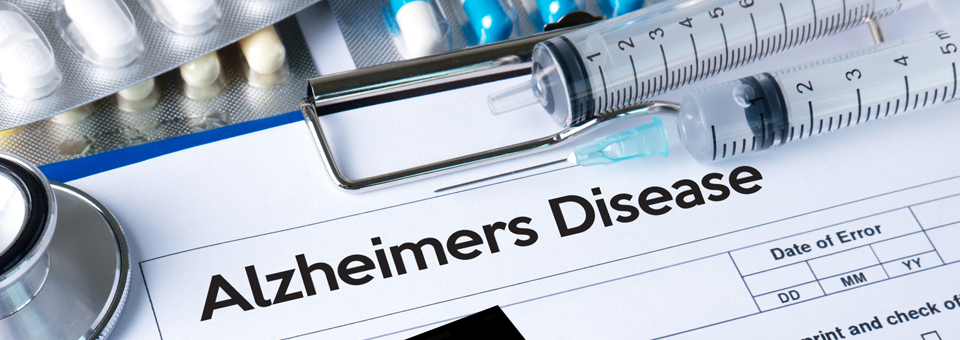New evidence confirms what I’ve known for years…
You can sharply reduce your risk of Alzheimer’s with the right nutrients.
That’s good news because the drug companies have failed miserably. They haven’t brought a single successful Alzheimer’s drug to market… ever.
Here’s what they’re missing.
A considerable cause of Alzheimer’s is the modern-day deluge of simple sugars and processed carbohydrates foisted on consumers by the big food companies. Environmental toxins and pesticides are risk factors as well.
Together, the toxins and sugar trigger a cascade of insulin resistance, metabolic syndrome, and rampant chronic disease.
That’s why this new study is so significant.
It links the Mediterranean diet’s healthy fats and low processed carb intake to a reduced risk of Alzheimer’s. And that means you can fight back!
The REAL Solution for Alzheimer’s?
Researchers at the German Center for Neurodegenerative Diseases in Bonn wanted to know if a diet low in processed carbs could ward off Alzheimer’s.1
Using cognitive tests, brain scans, and biomarkers from 512 subjects, they discovered a “significant correlation” between healthy brain function and a Mediterranean-style diet rich in fish, nuts, seeds, leafy vegetables, and olive oil.
In fact, the Mediterranean-style eaters even had a larger hippocampus, the part of the brain responsible for learning and memory.
These findings mean you’re not powerless against Alzheimer’s. You can protect your brain through better nutrient intake.
This tracks closely with my findings at the Sears Institute for Anti-Aging Medicine. But I have evidence the meal plans and nutrients I recommend are even healthier for your brain.
Your Anti-Alzheimer’s Protocol
I encourage my patients to limit their carb intake to less than half the amount found in most Mediterranean diets, just 10 to 15% of total calorie consumption. Design every meal around healthy protein and fat.
Get plenty of grass-fed beef
, pasture-raised poultry. Eat wild-caught fish with plenty of omega-3s. I specifically recommend salmon, sardines, anchovies and calamari because their shorter life cycles expose them to fewer toxins.Swedish scientists compared the benefits of Mediterranean versus primal diets. Their findings provide strong evidence that my Primal Power Meal Plan811811 is the best one for your brain.
The Mediterranean foodies’ blood sugar numbers dropped an average of 7 percent after three months.
But the average blood-sugar decline for those eating paleo was nearly four times higher — 26 percent2 — a major reduction in Alzheimer’s risk.
And if you give your body a stable supply of essential minerals it will boost your brain function even further. Here’s how.
Fantastic 4 Minerals To Douse Inflammation
Here are four vital minerals that slam the brakes on insulin resistance and Alzheimer’s:
-
- Chromium. This mineral helps digestion and increases insulin’s ability to push glucose into your cells. Type 2 diabetics typically have low chromium levels. I recommend 400 mcg of niacin-bound chromium such as chromium polynicotinate to boost absorption.
-
- Magnesium. Lower magnesium levels have been linked to a greater risk of type 2 diabetes.3 Magnesium also helps lower blood pressure. I recommend between 600 and 1000 mg daily.
-
- Selenium. You need about 200 mcg a day of selenium to help insulin direct your cells to accept more glucose. It’s also vital for good thyroid function. Each Brazil nut has about 100 mcgs… most multivitamins contain some as well.
- Zinc. Your pancreas needs zinc to manufacture, store, and secret insulin. Zinc deficiency can lead to type 2 diabetes and hurt your immunity. I recommend patients supplement with 30 mg daily to keep chronic disease and Alzheimer’s at bay.
To Your Good Health,
![]()
Al Sears, MD, CNS
References:
1. Ballarini, Tommaso, et al. “Mediterranean Diet, Alzheimer Disease Biomarkers and Brain Atrophy in Old Age.” Neurology, 5 May 2021.
2. Lindeberg, S., et al. “A Palaeolithic Diet Improves Glucose Tolerance More than a Mediterranean-like Diet in Individuals with Ischaemic Heart Disease.” Diabetologia, vol. 50, no. 9, 22 June 2007, pp. 1795–1807, 10.1007/s00125-007-0716-y.
3. Barbagallo, Mario. “Magnesium and Type 2 Diabetes.” World Journal of Diabetes, vol. 6, no. 10, 2015, p. 1152, www.ncbi.nlm.nih.gov/pmc/articles/PMC4549665/, 10.4239/wjd.v6.i10.1152. Accessed 11 Feb. 2019.

